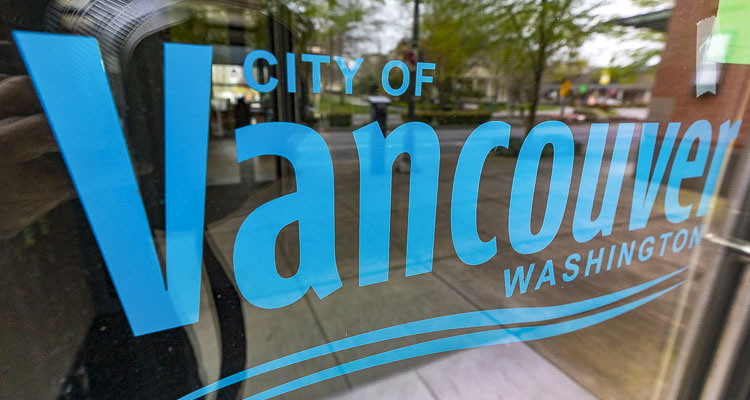
The ordinance allows for existing fossil fuel facilities to be maintained and upgraded
VANCOUVER – On Monday, members of the Vancouver City Council voted unanimously to approve changes to the city’s fossil fuel code. The ordinance — which supports two of the city’s policy priorities, addressing climate change and equity — seeks to protect and enhance public health and safety, environment, and foster a transition to cleaner fuels in alignment with the city’s Climate Action goals.
“We’re concerned fossil fuel facilities pose a risk to the area’s health and safety,” said Chad Eiken, city community development director. “There are currently six bulk facilities that are susceptible to liquefaction and hazardous materials could potentially flow into the Columbia River, wetlands and other wildlife habitats in the case of a seismic event. These code changes are intended to reduce this risk and also minimize greenhouse gas emissions.”
Changes under the approved ordinance include:
- New bulk fossil fuel facilities, coal energy-generating facilities and solid fuel yards will be prohibited in all zoning districts
- Existing bulk fossil fuel facilities could be upgraded and maintained to ensure safe operations
- Cleaner fuels will be specifically defined to include a number of types of liquid or gaseous fuels produced from renewable sources or that have low or no emissions
- The capacity of existing bulk fossil fuel facilities could be expanded by 15% if switched to cleaner fuels, upgraded to seismic standards, and subject to approval of fire and spill response plans, among other requirements
- New cleaner fuel facilities of up to one million gallons capacity may be allowed by conditional use permit in the IH District in order to support the City’s Climate Action Strategy and a transition away from fossil fuels
“The environmental health impacts of fossil fuel facilities add disparate burdens on some communities in Vancouver,” said Dan Serres, Columbia Riverkeeper conservation director. “The proposed ordinance avoids worsening environmental health disparities already present in Vancouver and demonstrates and awareness of the difficulties these communities face.”
Approval of the fossil fuel code change ordinance does not apply to storage or use of petroleum for commercial sales or industrial processes, or maintenance or repair of existing facilities.
The ordinance allows for existing fossil fuel facilities to be maintained and upgraded; an allowed modest increase in capacity is intended to incentivize a conversion to cleaner fuel and upgrade to seismic standards. The ordinance takes effect Nov. 5.
Information provided by city of Vancouver.
Also read:
- POLL: Is it time for new leadership at Vancouver City Hall?A new weekly poll asks whether Vancouver voters should prioritize replacing the mayor and city council in the 2025 election.
- Opinion: How will the majority party’s new budget and tax proposals affect you?Rep. John Ley critiques the state’s proposed 2025-27 budgets, warning of record-breaking tax hikes and economic impacts.
- Opinion: Washington’s EV sales far short of next year’s state mandateTodd Myers highlights how Washington’s EV sales fall short of next year’s mandate, raising concerns over rising car prices and limited options.
- Letter: ‘Our state and local governments need to learn to live within their means’Camas resident Lauren Colas voices strong opposition to Proposition 1 and other tax proposals, calling for state and local governments to rein in spending.
- 18th District lawmakers ensure vital funding for projects in SW Washington are included in proposed 2025-27 House capital budgetLawmakers in the 18th District secured over $5.6 million in proposed funding for projects in Vancouver and Battle Ground under the 2025-27 House capital budget.
- USA Basketball to hold free youth basketball clinic Friday, April 11USA Basketball is hosting a free youth clinic for kids of all abilities at the Clark County YMCA in Vancouver on Friday, April 11.
- Vancouver firefighters respond to ship loader fire at the Port of VancouverVancouver firefighters responded to a grain fire in a ship loader at the Port of Vancouver, safely extinguishing the flames with support from multiple crews.











